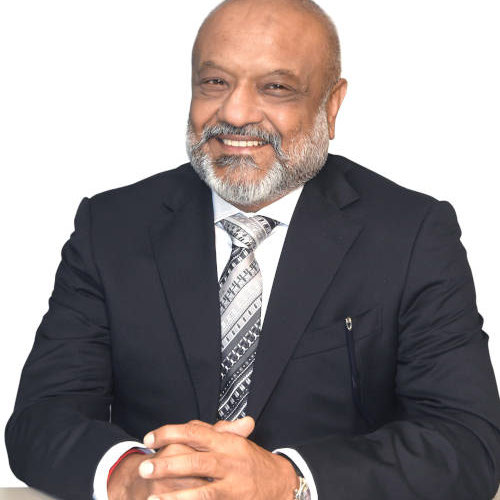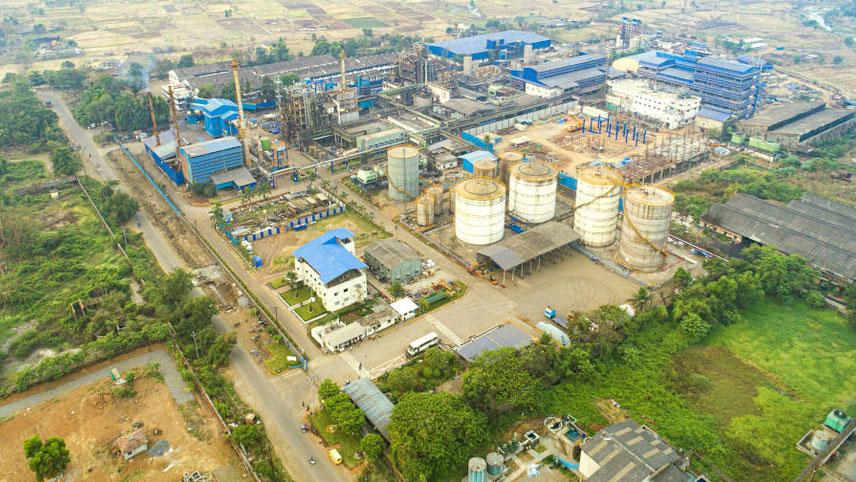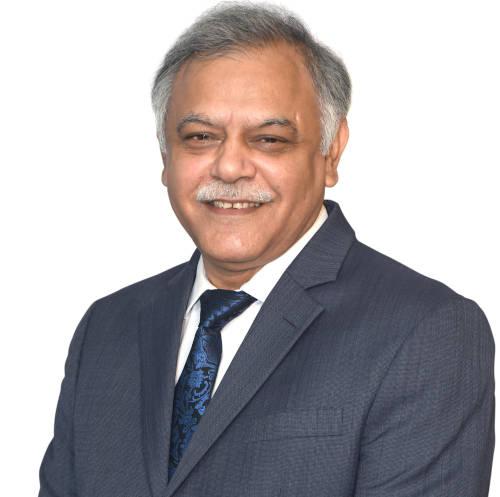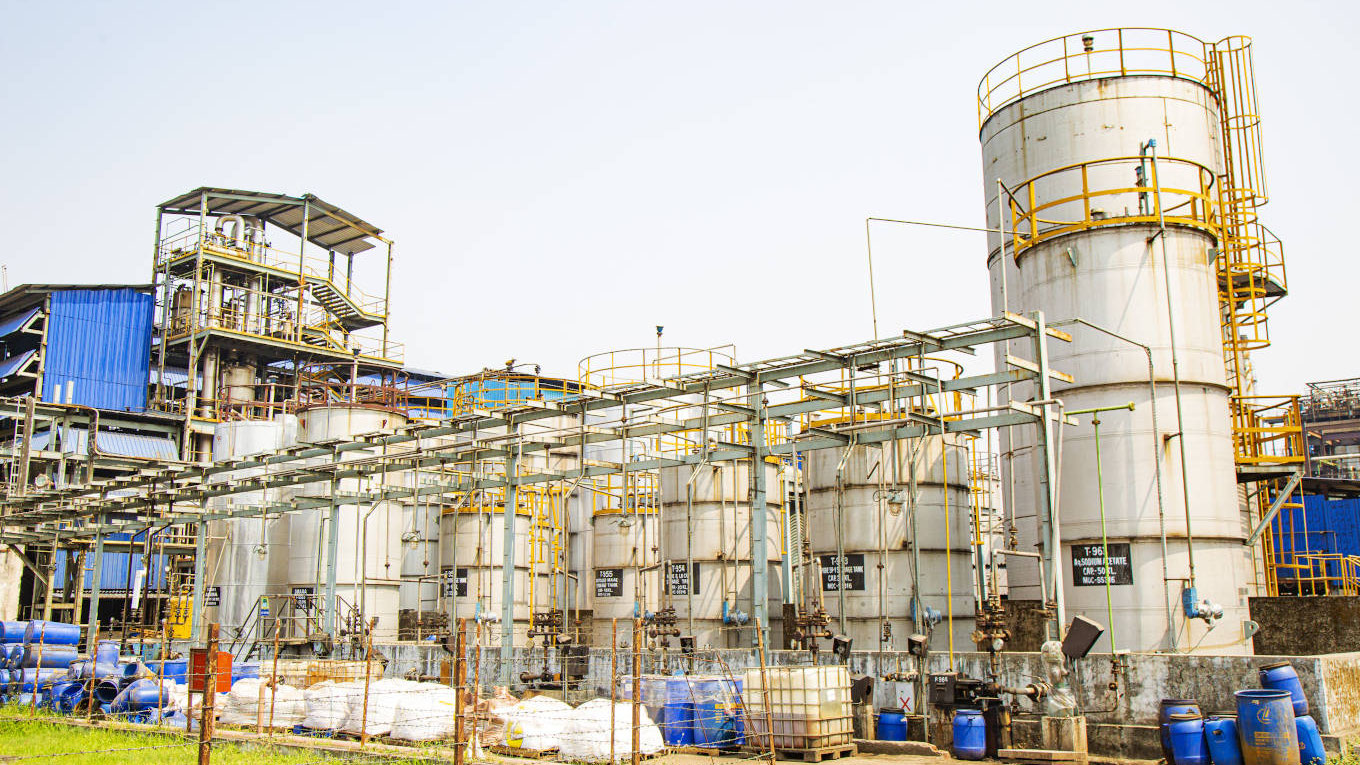-

Ravi Goenka: R&D is a key growth driver
Laxmi Organic has two strategically located manufacturing facilities for acetyl intermediates and specialty intermediates at Mahad, close to several ports, including the Jawaharlal Nehru Port, JSW port and Mumbai port. Its products find application in a number of high growth industries including pharmaceuticals, agrochemicals, dyes & pigments, inks & coatings, paints, printing & packaging, flavours & fragrances, adhesives and other industrial applications.
The global active pharmaceutical ingredients market is projected to grow at a CAGR of 5-6 per cent, the global agrochemicals and fertiliser market is expected to garner revenue at a CAGR of 5.5-6 per cent, and the paints, coatings and additives industry is projected to grow at a CAGR of 5.1 per cent, according to Frost & Sullivan. This is a definite advantage to Laxmi Organic. “We have established long-standing relationships with marquee customers across various industries,” explains Ravi Goenka. “For instance, our long-term customers in the pharmaceutical segment include Alembic Pharmaceuticals, Dr Reddy’s Laboratories, Hetero Labs, Laurus Labs, Macleods Pharmaceuticals, Mylan Laboratories, Neuland Laboratories, Suven Pharmaceuticals and Granules India and in the agrochemicals segment UPL, Syngenta Asia-Pacific, and Sudarshan Chemical Industries.”
The Covid-triggered lockdown was like a bolt from the blue for Laxmi Organic as well. “The first 15 days were terrible, traumatic,” recalls Ravi Goenka. The company was allowed to resume production as it supplies key intermediaries to the pharma industry. China used to be the large producer of hydroxyl chloroquine but the anti-China tidal wave was an opportunity for Laxmi Organic. “We converted one of our plants to make an intermediary for this drug,” says Ravi.
Laxmi Organic does not keep all its eggs in one basket. “No single customer contributed to more than 10 per cent of our revenues from operations during the six-month period ended 30 September 2020 and 2019-20, 2018-19 and 2017-18. We have adopted a diversified sales model wherein we sell on spot, through short term contracts, annual contracts and multi-year contracts based on customers preference and value propositions,” says Partha Roy Chowdhury, CFO, LOI. “In addition to India, we have customers in over 30 countries including China, the Netherlands, Russia, Singapore, the UAE, the UK and the US,” adds Satej Nabar, executive director & CEO, Laxmi Organic.
Healthy growth
The global ethyl acetate market is expected to grow at a CAGR of more than 4.5 per cent over the next decade in terms of volume and is projected to grow from about four million tonnes in 2019 to five MT by 2024. In terms of revenue, the global ethyl acetate market stands at about $3.5 billion and is expected to grow at 5.5-6 per cent CAGR over the next half decade.
The company has two distilleries, close to sugar mills, in Maharashtra, for the manufacturing of ethanol and specially denatured sprit from molasses. Ethanol is a basic raw material required for the manufacture of acetyls including acetic acid, acetaldehyde and ethyl acetate. These distilleries enable backward integration by acting as feeder plants to both acetyls as well as specialty intermediates operations, provide effective control over raw materials and also reduce dependence on third parties for ethanol. Acetic acid and ethanol are also common raw materials for both acetyl intermediates and specialty intermediates.
-

The company makes a range of specialty chemicals that cater to pharmaceuticals, colourants and agrochemical industries
New products
Traditionally, India fulfilled most of its diketene demand from imports, which were mainly from Europe or from China. “Over the last decade, however, we have rapidly gained domestic market share and held a market share of about 55 per cent of the Indian diketene derivatives market in terms of revenue in 2019-20. This has been reflected in the Frost & Sullivan report,” says Harshvardhan Goenka. “Our SI manufacturing facility makes a range of specialty chemicals that cater to pharmaceuticals, colourants and agrochemical industries and also substitute possible imports. We were one of the largest suppliers of diketene-based specialty intermediates in Europe from India in calendar year 2019,” he says.
For pharma giant Glenmark, it has been an ‘excellent partnership’ with Laxmi Industries over the last 8-10 years. “We were able to develop products with their excellent support and technical partnership. Since then, the relationship has been scaling new heights of trust and confidence,” says Sachin Uttekar, general manager, API Commercial, Glenmark Life Sciences. It has been a close and cordial business relationship as Laxmi Organic has been always ready to deliver as per customer requirements for all regulatory and quality requirements without any deviation in the stipulated period of time irrespective of the pandemic or natural calamities, Uttekar adds
The increasing demand in pharmaceuticals and agrochemicals from developing economies like India is likely to increase the consumption of diketene and its derivatives, where Laxmi Organic has a very strong presence. “Through R&D initiatives and experience in handling complex chemistries, we have been able to unlock value by adding downstream and value-added products to our product portfolio of specialty intermediates. While we commenced making specialty intermediates in 2010, we offer more than 34 products as part of our SI portfolio today and we have one of the largest portfolios of diketene products,” says Ravi Goenka.
“We believe that research and development of new products to meet our customers’ requirements is a key growth driver of our business. We have two DSIR-recognised research and development facilities, equipped with state-of-the-art infrastructure to synthesise specialty molecules and advanced intermediates,” he explains. Laxmi Organic plans to diversify by adding new products, including downstream and value-added products, while focussing on growing recently launched products in order to grow its customer base and revenues.
Coromandel, India’s second largest phosphatic fertiliser player, sees Laxmi is emerging as one of the sustainable suppliers in chemicals industry. Laxmi Organic supplies specialised intermediates which are eventually used in crop care. “I found Laxmi Organic quality-conscious. Its product quality and service quality are good,” says Abhijit V.D., senior GM, head, commercial & SCM, Mumbai, Coromandel. “We can rely on them for consistent supply of material. Last year, in the pandemic also, they could manage to keep supply consistent and ensured their customers did not face production losses due to non-supply of material from them,” Abhijit adds.
-

Chowdhury: diversified sales model
In June 2019, Laxmi Organic acquired assets, including plant and machinery, design and operating paperwork, REACH (The European regulation on Registration, Evaluation, Authorisation and Restriction of Chemicals) registrations and patents of Miteni, a manufacturer of fluoro-specialties and electro-chemical fluorination, to foray into a new chemical business.
Laxmi Organic appointed a consultant in Italy to facilitate a speedy and successful handover, dismantling and relocation of the assets acquired as well as to obtain business development and marketing support in Europe. The new plant will come up at Lote Parsuram in Maharashtra. The global fluoro-chemicals market was valued at $22.5 billion in 2019 and is projected to witness a significant growth at a CAGR of 5.1 per cent to reach $28.8 billion by 2024. The market for fluoro-chemicals in India was valued at ~$405 million for 2019 (source: Frost & Sullivan Report).
It is estimated that up to 20 per cent of the pharmaceuticals in the market or in clinical development contain a fluorine atom and 50 per cent of agrochemicals molecules developed recently also contain fluorine. According to the Frost & Sullivan Report, one in every three new active pharmaceutical ingredients will be based on fluorine chemistry.
Knowledge-intensive industry
The industry is highly capital-intensive and has high entry barriers due to the involvement of complex chemistries in the manufacturing of products and the requirement to be enlisted as a supplier after due qualification rounds, particularly in the pharmaceutical and agrochemical industries. The specialty chemicals industry is highly knowledge-intensive. “Given the nature of the application of our products, our processes and products are subject to, and measured against, high quality standards and stringent impurity specifications,” says Ravi Goenka.
“We have achieved a high capital efficiency with high asset turnover and working capital turnover ratios, which enables us to utilise our capital in the optimal manner and remain competitive in the industry we operate in,” he explains. For the six months ended 30 September 2020, as also 2019-20, 2018-19 and 2017-18, the company’s asset turnover ratio was 0.77, 1.47, 1.64 and 1.82, while the working capital turnover ratio was 5.85, 10.86, 11.34 and 14.53.
Buoyed by the booster from Dhirubhai Ambani, Ravi Goenka had got his chemistry right, leading Laxmi Organic to grow big. His appetite for growth also seems to have been influenced by Ambani. The company now plans to tap the IPO market to raise funds for the expansion and has just filed its draft red herring prospectus (DRHP) with the market regulator SEBI, targeting to raise about Rs800 crore.
-

Harshvardhan: we gained rapidly
The IPO is a fresh issuance, aggregating Rs500 crore and an offer for sale of face value of Rs2 each by the promoter-selling shareholder, Yellow Stone Trust, aggregating to Rs300 crore. The net proceeds will go into funding its capital expenditure planned for the fluoro-specialty chemicals plant coming up at Lote Parsuram, working capital requirements, purchase of plant and machinery, prepayment or repayment of outstanding, upgrading existing units besides general corporate purposes. Axis Capital and DAM Capital Advisors have been appointed the BRLMs to the issue.
Laxmi Organic has already raised Rs200 crore in pre-IPO placement, with robust interest from established institutions like IIFL, Grantham, Mayo & Van Otterloo (GMO Funds); White Oak Capital Management and Sumeet Nagar-led Malabar Investments; and low-profile market investor and co-founder of erstwhile Enam, Jagdish N. Master. The pre-IPO has been priced at Rs129 per equity share of face value of Rs2 each, which indicates a post-money market capitalisation of Rs3,400 crore, analysts say.
The IPO comes in the wake of the recent fundraising successes of specialty chemical companies like Rossari Biotech and Chemcon Specialty Chemicals, which were subscribed almost 80 times and 149 times, respectively. Investors expect this sector to benefit strongly from geopolitical and trade paradigms shifting and government initiatives on Atma Nirbhar Bharat.






































